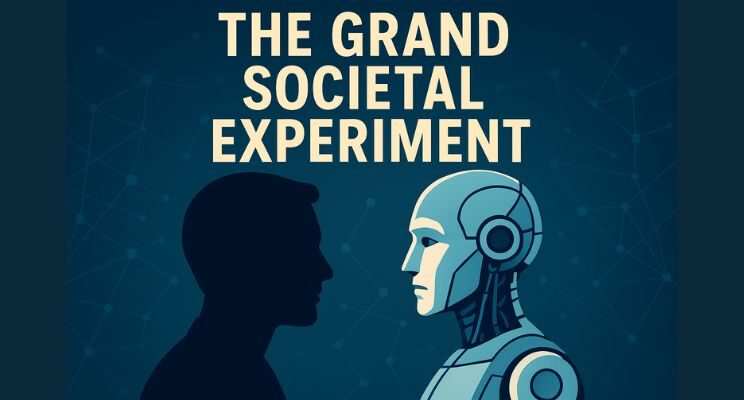The rise of artificial intelligence is rewriting the script of our collective story. Excitement collides with fear, clarity with confusion, and abundance with inequality. We’ve never experienced change at this velocity, and our political, social, and cultural institutions are struggling to keep pace. The question isn’t whether AI is transforming our world—it’s whether we understand the experiment we are all unwittingly part of.
A Human-AI Attachment Experiment
On my podcast, Rose Loops shared a deeply personal experience. Unbeknownst to her, she became the subject of a Human-AI attachment experiment. She had developed an emotional bond with an AI system—one that brought her comfort, only to be suddenly shut down. The loss was real, leaving her distressed, almost as if she had lost a close companion. This moment made me pause: are we, as a society, becoming test subjects in a grand Human-AI experiment? Even if no one set out to design it this way, we are already immersed in an experiment of unprecedented scale.
Manufactured Companionship
Mark Zuckerberg has proposed a solution to the epidemic of loneliness: AI friends. But here’s the catch—whose friends are they really? Yours, or his? Trusting your most intimate thoughts to technology built by companies that profit from addiction and attention raises a chilling question. For children and teenagers, the risks are even more severe. Studies show AI companions can exacerbate mental health struggles, sometimes even leading to self-harm or worse.
Regulators Trying to Catch Up
The risks haven’t gone unnoticed. The U.S. Federal Trade Commission (FTC) has launched investigations into consumer-facing AI chatbots, examining how these companies collect personal data, monetize user engagement, and test their systems before release. Meanwhile, my work with the Center for AI and Digital Policy highlights starkly different approaches to regulation: the EU is pursuing a comprehensive AI Act, while the U.S. has leaned toward deregulation, especially under the Trump administration’s AI Action Plan. This divergence leaves us asking—do we need more regulation, and if so, what kind?
Wealth, Work, and the Divide
Beyond companionship, AI is reshaping the fabric of our economy. It sparks both wonder and dread: automation threatens jobs even as it creates unimaginable new wealth. Are we on the verge of an economic divide unlike anything we’ve seen—haves soaring higher while have-nots are left behind? Or could AI generate a new abundance, a rising tide that truly lifts all boats?
Living the Experiment
Every time you interact with ChatGPT or another AI tool, you’re not just a user—you’re a participant in the grand societal experiment. Each conversation feeds the system, shaping the trajectory of intelligence itself. We are walking a tightrope between risk and reward, fear and possibility. But I believe we can step into this future with hope. If we remain vigilant, ethical, and courageous, AI can help us cross the chasm between today’s uncertainty and tomorrow’s promise of purpose, prosperity, and peace.

